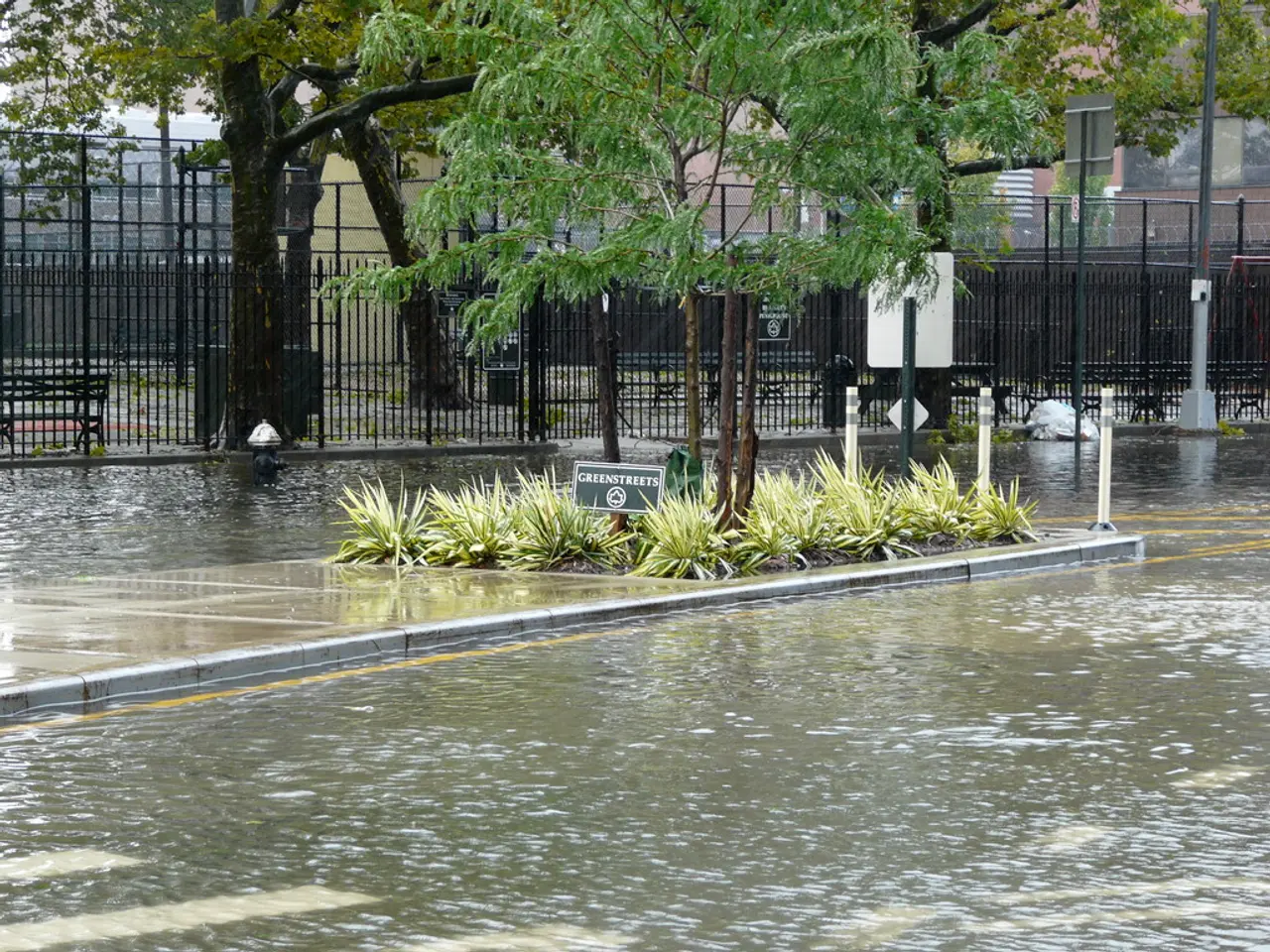Turkey initiates delivering gas from Azerbaijan to boost Syria's power generation capacity
In a significant development, a ceremony was held to discuss the export of natural gas from an unspecified source to Syria. The ceremony, attended by high-profile figures including Turkish Energy Minister Alparslan Bayraktar, Syria's energy minister, Azerbaijan's economy minister, and the head of Qatar's development fund, took place in the southern province of Kilis near the Syrian border.
The aim of this initiative is to rebuild Syria's war-damaged power infrastructure and normalize the electricity supply. Syria's Islamist authorities are seeking to rebuild the country, where power cuts can last for more than 20 hours a day. The natural gas, as stated by Damascus, will be used to generate electricity in Syria.
The natural gas will be transported to Aleppo and then to Homs, where power plants will become operational in the near future. The gas supply is expected to activate a power plant with a capacity of around 1,200 megawatts, sufficient to power up to 5 million homes and produce between 900 megawatts to 1,200 megawatts of electricity. This will alleviate Syria's severe power shortages, where electricity had been limited to just 3-4 hours per day.
The pipeline project, inaugurated in August 2025 following the restoration of damaged pipelines completed in May, is part of a broader reconstruction effort in Syria and involves a strategic swap deal between Turkey, Azerbaijan, and financial backing from Qatar. This energy cooperation not only helps Syria’s critical electricity deficit but also positions Turkey as a key regional energy transit hub and influence player amid shifting geopolitical dynamics involving Syrian reconstruction, regional powers, and Western and Gulf investment interests.
It's worth noting that a first phase of the Qatari scheme for gas supplies to Syria for power generation was rolled out in March via Jordan, providing 400 megawatts of electricity per day. However, the specific source of the natural gas for export to Syria was not specified in the ceremony. Up to two billion cubic meters of natural gas per year could be exported to Syria in the initial phase, according to Bayraktar.
In conclusion, Turkey's natural gas export initiative to Syria represents a significant step towards rebuilding Syria's war-torn power infrastructure and normalizing the electricity supply, which is essential for economic recovery and stabilization after years of conflict.
- The energy cooperation between Turkey, Azerbaijan, and Qatar, as represented by the natural gas export initiative, is part of a broader financial and industrial strategy aimed at rebuilding Syria's devastated economy and normalizing political relations.
- The pipeline project, a crucial component of the general-news surrounding Syria's reconstruction, not only offers a strategic solution to Syria's severe energy crisis but also positions Turkey as a vital player in both regional energy transit and regional politics.
- The industrious partnership between the countries involved in the natural gas export project is expected to not only address Syria's critical electricity deficit but also potentially attract investment interests from the West and the Gulf, shaping the future economic landscape of Syria and the region.




